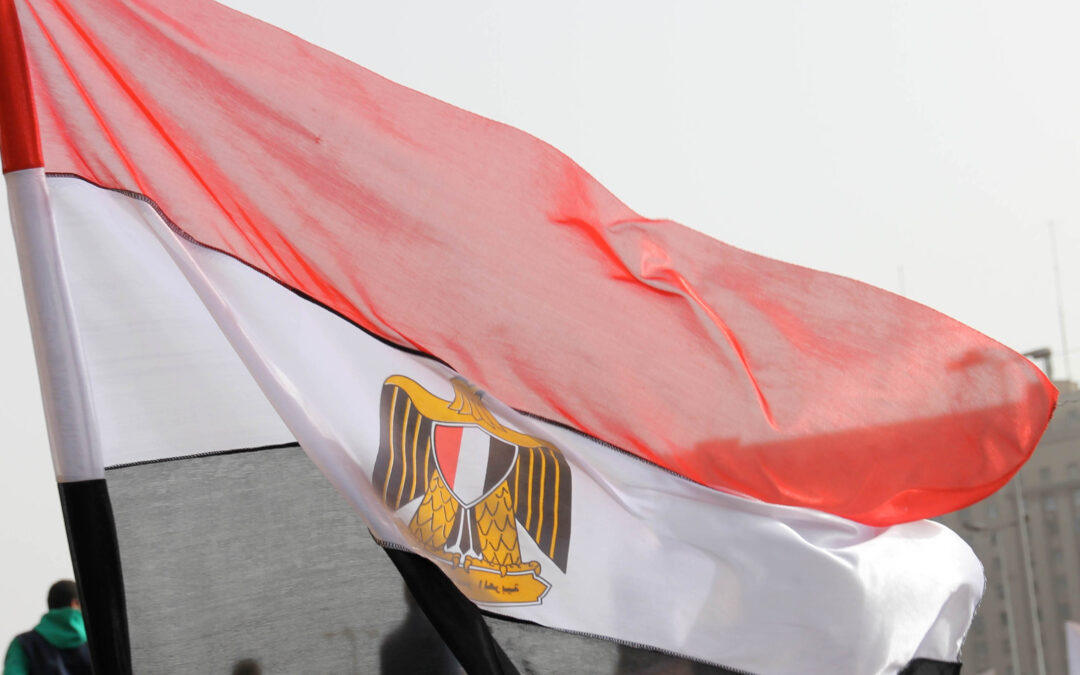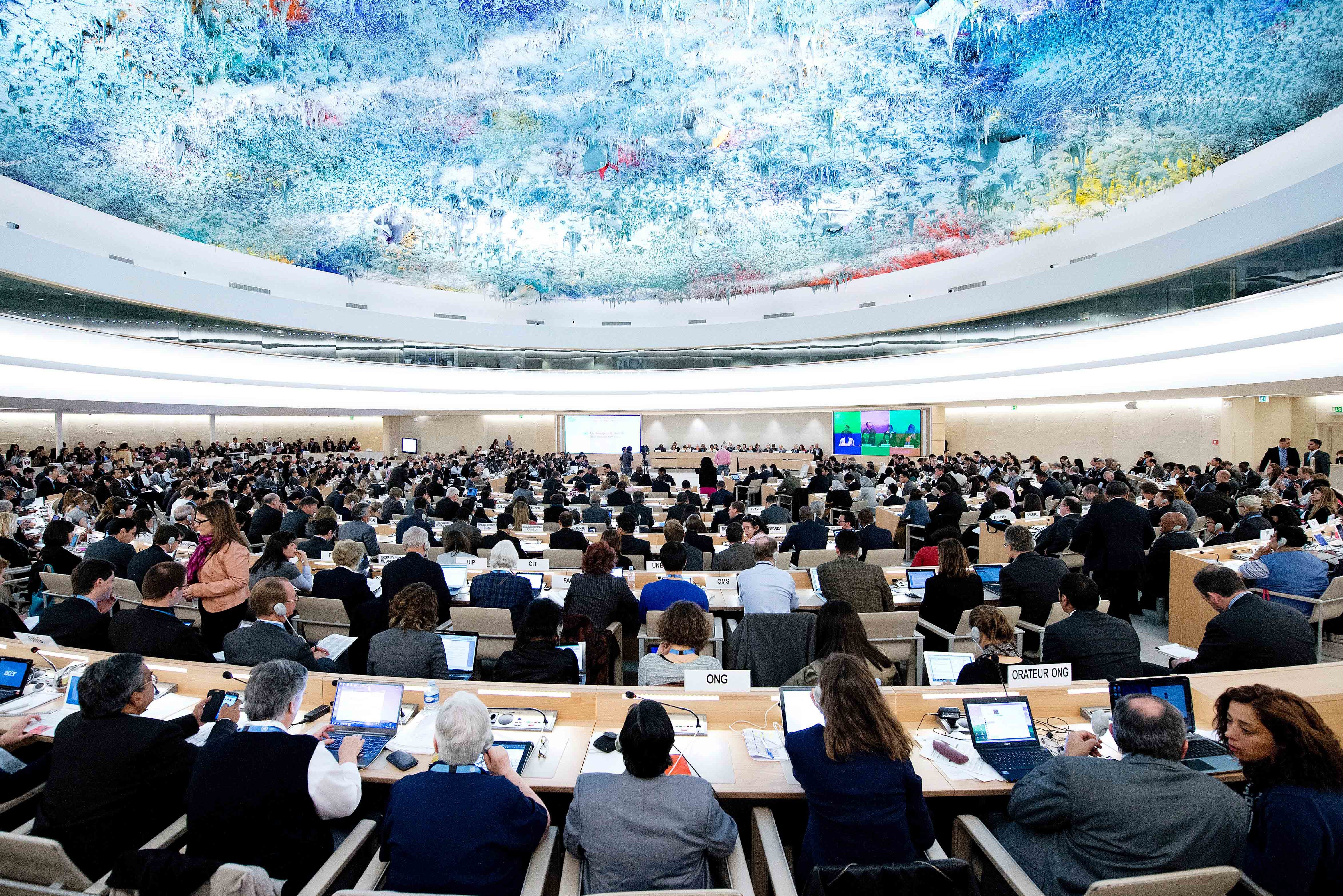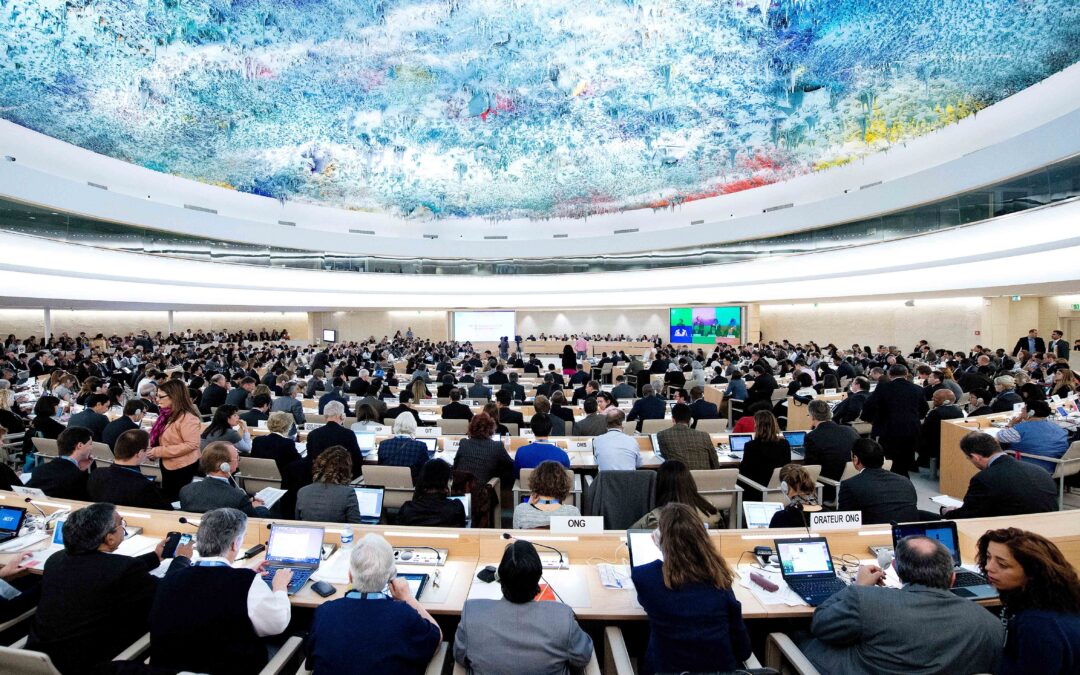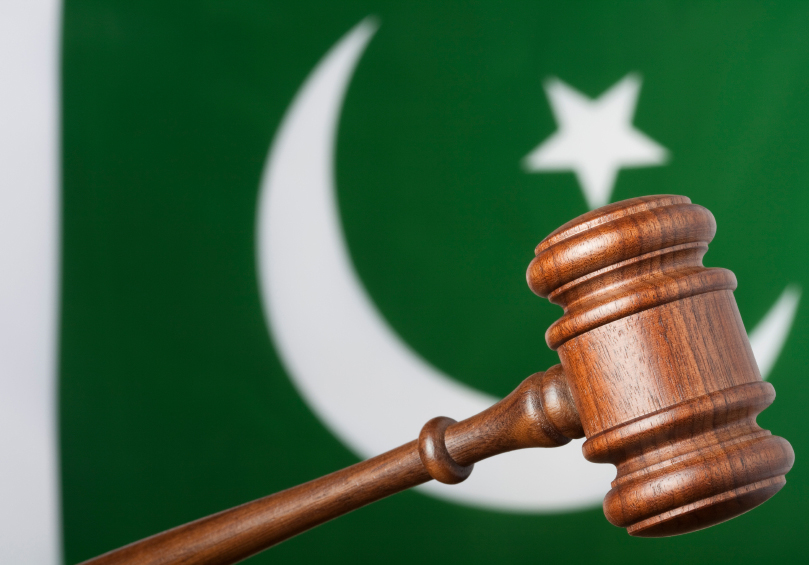
Jun 8, 2015 | News
While the constitution of Pakistan’s first National Commission for Human Rights is welcome, the Commission risks being toothless unless its powers are extended to investigate human rights violations allegedly committed by the security agencies, the ICJ warned today.
The ICJ was informed that members of the National Commission for Human Rights were notified on 20 May 2015, three years after the National Commission for Human Rights Act was passed in June 2012.
“The establishment of a national human rights commission is a much-needed step for the promotion and protection of human rights in Pakistan,” said Sam Zarifi, ICJ’s Asia Director. “But for the new Commission to be able to assist the people of Pakistan, who face tremendous violations of their rights in terms of civil, political, social, economic, and cultural rights, it must be able to address the conduct of the country’s powerful military and security agencies.”
Under the National Commission for Human Rights Act, the Commission’s powers include investigating human rights violations, suo motu or on petition; visiting detention centers to ascertain the legality of the detention of detainees and ensure detainees are treated according to law; reviewing and suggesting amendments to Pakistan’s constitutional and legal framework on human rights; making recommendations for the effective implementation of international human rights treaties; and developing a national plan of action for the promotion and protection of human rights.
The law provides that while inquiring into complaints under the Act, the Commission shall have all powers of a civil court, including summoning and ensuring attendance of witnesses, receiving evidence on affidavits; and discovery and production of documents.
However, the Commission’s mandate is very limited where the armed forces or security agencies are accused of committing human rights violations, the ICJ says.
The law specifically states that “the functions of the Commission do not include inquiring into the act or practice of the intelligence agencies”.
Where the armed forces are accused of human rights violations, the Commission is only authorized to seek a report from the Government and make recommendations.
“The Commission’s restricted mandate over the armed forces, and especially the intelligence agencies, is of grave concern given that Pakistan’s military and intelligence services are accused of perpetrating gross human rights violations, including enforced disappearances, extrajudicial killings, and torture and ill-treatment,” Zarifi said. “A human rights commission that does not have jurisdiction over abuses by these actors risks being toothless and ineffective – and worst, a cover for continuing government inaction in response to these violations.”
“With these exceptions in place, it seems questionable that the Commission will get accreditation by the International Coordinating Committee of NHRIs, which is a requirement for a National Human Rights Institution to be recognized internationally,” he added. “The Pakistani government should ensure that the Commission complies with international standards so it can help protect and promote the rights of all people in Pakistan.”
Additional Information:
Justice (r) Ali Nawaz Chohan was appointed as the Chairperson of the Commission. Other members include one representative from each province; one representative each from the Islamabad Capital Territory and the Federally Administered Tribal Areas; the Chairperson of the National Commission on the Status of Women; and a member belonging from a religious minority community.
The UN Principles relating to the Status of National Institutions (Paris Principles) provide the minimum standards required by national human rights institutions to be considered credible and effective, and get accreditation by the International Coordinating Committee of NHRIs. Section 3 (a) (ii) of the Paris Principles states that a NHRI should have the power to hear a matter without higher referral over “any situation of violation of human rights which it decides to take up”.
Section 4 of the National Commission on Human Rights Act, 2012, provides the following procedure for appointment of members of the Commission: the Federal Government invites nominations for commissioners through public notice; the Prime Minister and Leader of the Opposition scrutinize the nominations; and the Prime Minister and Leader of the Opposition forward three names for each member of the commission to a parliamentary committee for confirmation. The law provides that the parliamentary committee would comprise of two members of the National Assembly (lower house) and two members of the Senate (upper house) –with two members each from the government and two from the opposition.
Contact:
Sam Zarifi, ICJ Asia Pacific Regional Director (Bangkok), t: +66 807819002; e: sam.zarifi(a)icj.org
Reema Omer, ICJ International Legal Adviser for South Asia (London), t: +44 7889565691; e: reema.omer(a)icj.org

May 18, 2015 | News
The ICJ condemns ongoing egregious human rights violations, including the right to life by the Egyptian authorities and facilitated by unfair judicial proceedings.
Yesterday, six men were executed following their conviction in an unfair trial by a military court and confirmation of the death sentences by the President of the Republic, Abdel Fatah Sissi, on 24 March 2015.
The men were part of a group of nine individuals accused of participating in attacks on security services and killing two officers of the armed forces on 19 March 2014.
Their conviction through military proceedings violated their right to a fair trial by a competent, independent and impartial tribunal.
Military court judges in Egypt are appointed by the Minister of Defense and are subject to military discipline procedures. By the very constitution of this court, in addition to by the manner in which the trial procedures were conducted, the defendants were denied the right to a fair trial under international standards.
All of the accused alleged that they had been subjected to torture and other ill treatment, as a result of which one of them was reported to have suffered a broken thigh and fractured knee.
Rights of defence were undermined, including the ability to have confidential access to a lawyer.
Furthermore, three of the accused were reportedly already in detention at the time the attacks they were convicted of participating in took place.
The executions came just a day after the decision on 16 May by the Cairo Criminal Court to recommend deaths sentences for more than 120 accused persons, including former President Morsi.
The cases have been referred to the mufti, the highest official religious authority in Egypt for confirmation.
This decision relates to two separate cases in which the accused, including Mohamed Morsi and other senior officials from the Muslim Brotherhood, were convicted of numerous charges.
These include, “murder”, “carrying out acts that compromise the independence of the country”, “abduction of police officers”, “collusion with a foreign organization to carry out terrorist activities in Egypt” and “carrying heavy weapons to resist the Egyptian state”.
The criminal proceedings that led to Saturday’s verdict follow grossly unfair trials.
The ICJ considers that in the trial and sentencing the defendants, the Egyptian authorities have acted in breach of Egypt’s obligations under international human rights law, including those relating to the right to life, the prohibition of torture and other cruel, inhuman or degrading treatment or punishment, and fair trial rights.
Many of the accused were denied access to counsel during detention, with some of them held incommunicado for months. Mohamed Morsi’s whereabouts were unknown from 3 July 2013 to November 2013.
The accused’s defence rights were largely undermined, including by curtailing the right to call and examine witnesses.
Further, during the entirety of the proceedings, prosecutors failed to provide substantial and credible evidence to support the charges against the accused, relying heavily on police and intelligence reports.
Reviewing numerous judgments issued in the context of similar mass trials resulting in death sentences, the ICJ has found a systematic failure of the courts to establish the individual guilt of each accused based on credible evidence.
Saturday’s judgment appears to continue this trend.
Further, under Egyptian law, decisions of felonies courts are not subject to appeal.
They can only be challenged before the Cassation Court, which does not look at the merits of the case but rather only the proper application of the law by lower courts.
“The imposition and execution of death sentences following such grossly unfair trials amount to a summary execution, a serious crime under international law,” said Said Benarbia, Director of the ICJ Middle East and North Africa programme.”
“Rather than contributing to serious human rights violations, Egyptian judges should preserve the dignity of their office and act in defence of the rule of law and human rights, not as a tool of repression,” he added.
The ICJ opposes the use of the death penalty in all circumstances as a violation of the right to life and a form of cruel, inhuman and degrading punishment.
The African Commission on Human and Peoples’ Rights has called on Egypt recently to refrain from carrying out the death penalty as it amounts to a violation of the right to life.
The UN General Assembly has repeatedly, by a large majority, called for a moratorium on its use.
Contact:
Alice Goodenough, Legal Adviser of the ICJ Middle East and North Africa Programme, t: +44 7815 570 834, e: alice.goodenough(a)icj.org
Nader Diab, Associate Legal Adviser of the ICJ Middle East and North Africa Programme, t: +41 229 793 804, e: nader.diab(a)icj.org
Egypt-Executions and mass death sentences-News-Press releases-2015-ARA (press release in Arabic, PDF)

Mar 25, 2015 | Advocacy, Non-legal submissions
La Comisión Colombiana de Juristas afiliada a la Comisión Internacional de Juristas resaltan el valioso aporte de la Oficina del Alto Comisionado durante estos 18 años en Colombia.
25° período de sesiones, Consejo de Derechos Humanos de Naciones Unidas
Tema 2 de la agenda, Informe anual de la Alta Comisionada de las Naciones Unidas para los Derechos Humanos sobre la situación de derechos humanos en Colombia (A/HRC/28/3/Add.3)
Situación de derechos humanos en Colombia
25 de marzo de 2015
Señor Presidente:
La Comisión Colombiana de Juristas afiliada a la Comisión Internacional de Juristas resaltan el valioso aporte de la Oficina del Alto Comisionado durante estos 18 años en Colombia: tiene oficinas en varias regiones y trabaja con comunidades afectadas por el conflicto armado; ha contribuido “a cambios positivos a través de su observación, incidencia, declaraciones públicas, buenos oficios y cooperación técnica”; “[h]a presentado informes periódicos a entidades gubernamentales; ha actuado como garante en conflictos (…); ha interactuado a diario con el Estado y la sociedad civil para encontrar soluciones a los desafíos de derechos humanos (…); y ha contribuido al fortalecimiento de las instituciones” (párrafo 2).
Pese a ciertos avances en derechos humanos, el Informe anual resalta los retos en materia de implementación, falta de voluntad política para aceptar la responsabilidad por violaciones del pasado1, desigualdades económicas y “un acceso asimétrico a los derechos y a los servicios públicos” (párrafo 14). Además, Colombia todavía actúa en contra de sus obligaciones internacionales, como sucede con el derecho a la consulta previa (párrafo 26) o la ampliación de la justicia militar (párrafo 60). Adicionalmente, Colombia no recibe procedimientos especiales desde 2010, aunque cuenta con una invitación permanente y seis mandatos han solicitado visita2.
Después de 18 años invertidos en el país, la Oficina sigue siendo los ojos de la comunidad internacional para derechos humanos, y el acompañante o asesor del Estado en el diseño de sus políticas (párrafos 16, 29, 34, 60).
Según el Informe, el Gobierno y las FARC-EP han logrado avances sin precedentes para poner fin al conflicto armado (párrafo 6). Si “[l]a perspectiva de una salida negociada al conflicto (…) y el crecimiento económico proporcionan una oportunidad única para ampliar la presencia del Estado, hacer frente a la desigualdad y mejorar la situación de los derechos humanos” (párrafo 19), indiscutiblemente la Oficina del Alto Comisionado en Colombia es una inversión clave, y no es de corto plazo.
Gracias señor Presidente.
1 El párrafo 58 dice: “El rechazo de responsabilidades por parte de las fuerzas armadas y de sus superiores políticos perpetúa la impunidad, socava la legitimidad institucional y erosiona el estado de derecho”.
2 Colombia cuenta con una invitación permanente a los procedimientos especiales de la ONU desde el 17 de marzo de 2003. Sin embargo, desde inicios de 2012 no ha aceptado ninguna visita, aunque los mandatos sobre extrema pobreza, personas internamente desplazadas, violencia contra la mujer, afrodescendientes, mercenarios y alimentación han solicitado visitar el país.

Mar 13, 2015 | Advocacy, Non-legal submissions
The Colombian Commission of Jurists, an affiliate of the ICJ, today called for the UN Human Rights Council to uphold the use of civilian courts, rather than military tribunals, to try civilians and to adjudicate claims for human rights violations.
An oral statement to the UN Human Rights Council highlighted that:
- military tribunals should as a matter of principle have no jurisdiction to try civilians or to adjudicate claims of serious human rights violations;
- These matters should be the domain of civilian courts; and
- The jurisdiction of military tribunals should be restricted to specifically military offenses committed by military personnel.
The oral statement emphasised to the global reach of the issue, referring by way of example to the military commissions established by the United States of America at Guantánamo Bay, as well as recent negative developments in Colombia, Egypt, Thailand and Pakistan.
The statement noted that the Principles Governing the Administration of Justice Through Military Tribunals presented to the Commission on Human Rights by Emmanuel Decaux in 2006 (UN Doc E/CN.4/2006/58), are widely referenced, but have yet to receive full recognition by the Human Rights Council. The statement added its support to the calls by the Special Rapporteur on Independence of Judges and Lawyers, the Working Group on Arbitrary Detention, and others, for the Council to endorse and seek implementation of the Principles without further delay.
The statement responds to an expert consultation on the administration of justice through military tribunals convened by the Council (UN Doc A/HRC/28/32).
The full oral statement can be downloaded in pdf format here: Advocacy-HRC28-MilitaryCourts-OralStatement-2015
Said Benarbia, Director of ICJ’s Middle East North Africa Programme participated in the expert consultation.
His statement can be found here: MENA-Military Courts HRC28-Advocacy-2015-ENG (full text in PDF).
Thailand exercised its right of reply, which can be viewed in the UN webcast archive, here.









